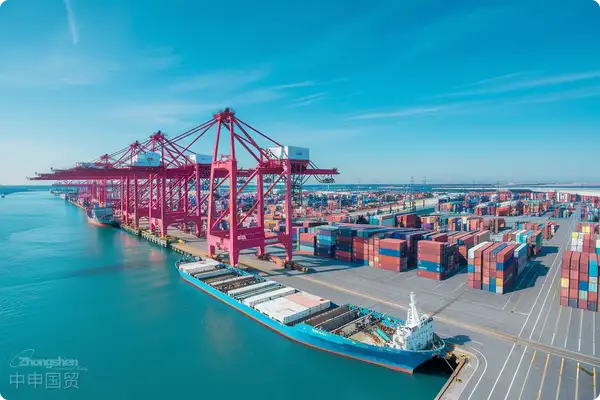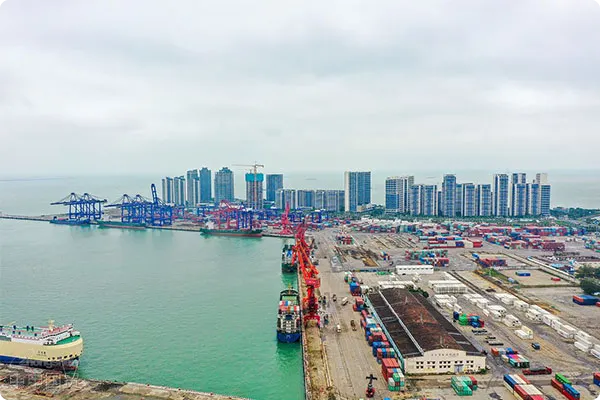- Shanghai Zhongshen International Trade Co., Ltd. - Two decades of trade agency expertise.
- Service Hotline: 139 1787 2118
In theforeign tradeIn business, encountering various temporary customer demands is common. For example, a batch of products is being exported to Bangladesh, and the settlement is made with the customer at the CIF (Cost, Insurance and Freight) price. After the contract is signed, due to riots in the port of destination, the buyer requests to add war risk insurance for the goods on a temporary basis. So, how should the seller handle this situation? Today, lets talk about this issue easily.
I. Understanding of the CIF Term and Insurance Scope
In international trade,CIF (Cost, Insurance and Freight)It is a common transaction method. Under the CIF price condition, in addition to bearing the cost of the goods, the seller also needs to pay the freight for transporting the goods to the designated port of destination, and handle cargo insurance for the buyer and pay the corresponding insurance premium.
According to international trade practices,if the buyer and the seller do not clearly agree on the type of insurance, the seller only needs to obtain the minimum insurance coverageThat is, under normal circumstances, the seller only needs to purchase insurance covering basic risks, such as loss or damage insurance during the transportation of the goods. Special risks such as war risks and strike risks do not belong to the standard minimum insurance scope, unless clearly agreed in the contract by both parties.

II. Handling Method of the Buyers Request to Add War Risk Insurance
Due to the riots in the port of destination, the buyer is worried about the safety of the goods during transportation, so requests to addwar risk insuranceIn this case, the sellers response can be:
- Negotiate the insurance premium with the buyer: In view that the war risk insurance was not included in the CIF price agreed upon by both parties before, the seller can negotiate with the buyer, stating that the war risk insurance is an additional type of insurance and was not covered in the contract. Therefore, it is recommended thatthe premium be borne by the buyerand the seller can assist in handling the procedures for adding insurance.
- Insure in the contract currency: When adding war risk insurance for the buyer, it is recommended to insure in the currency used in the contract as much as possible, to reduce the risk caused by exchange rate fluctuations and simplify the settlement process.
- Obtain clear written confirmation: Before adding war risk insurance, it is necessary to obtain the written confirmation of the buyer to ensure that an agreement is reached on the sharing of additional insurance premiums and the insurance scope, to avoid subsequent disputes.
III. Risk Management and Prevention under the CIF Price
Under the CIF condition, the seller bears the main transportation risks of the goods from the port of shipment to the port of destination. Therefore, special caution is required when choosing insurance. The minimum insurance can meet the basic requirements, but for some special countries or regions, there may be additional political risks or social instability factors. In this case, the seller can communicate with the buyer in advance, clearly stating which risks belong to the standard scope and which are additional options, which can effectively avoid subsequent additional disputes caused by increased risks.
IV. Summary: How to Handle the Buyers Temporary Request to Add Insurance?
To sum up, when facing the buyers request to add war risk insurance, first, it is necessary to clarify the requirements of the CIF clause in the contract for the insurance scope. War risk insurance does not belong to the standard CIF insurance scope, but when the buyer bears the additional premium, the seller can assist in handling the relevant insurance procedures. At the same time, ensure to obtain the written confirmation of the buyer during the negotiation process to avoid possible differences in the future.
Related Recommendations
Knowledge Base
Contact Us
Email: service@sh-zhongshen.com
Related Recommendations
Contact via WeChat

? 2025. All Rights Reserved. 滬ICP備2023007705號-2  PSB Record: Shanghai No.31011502009912
PSB Record: Shanghai No.31011502009912









